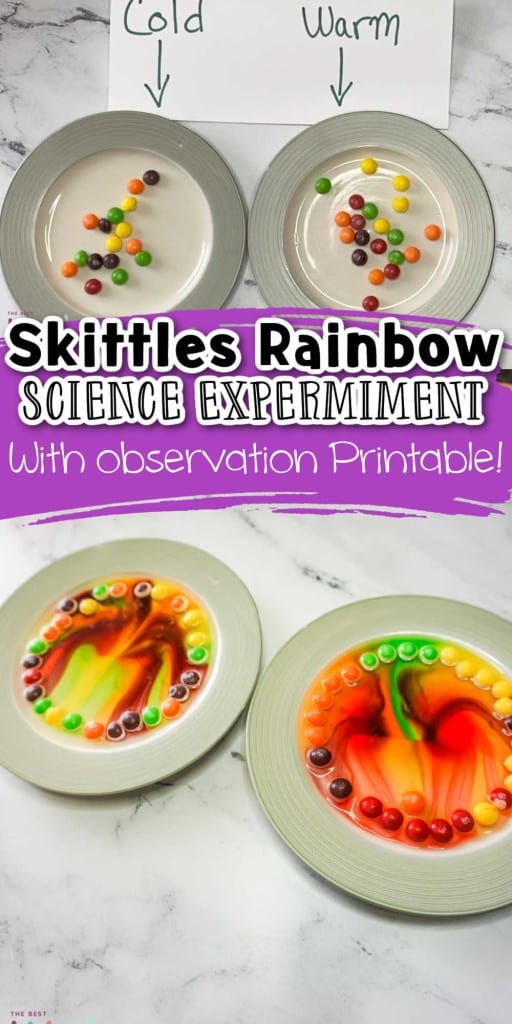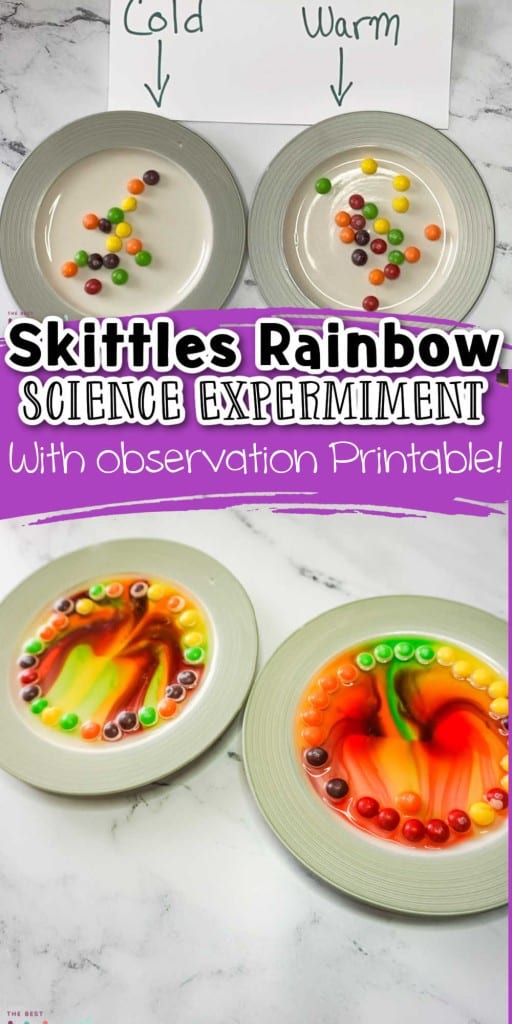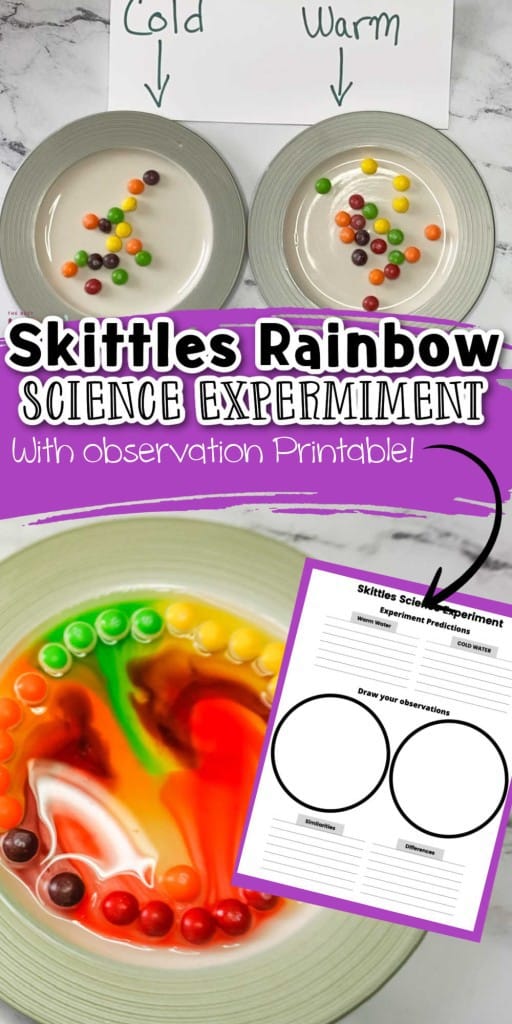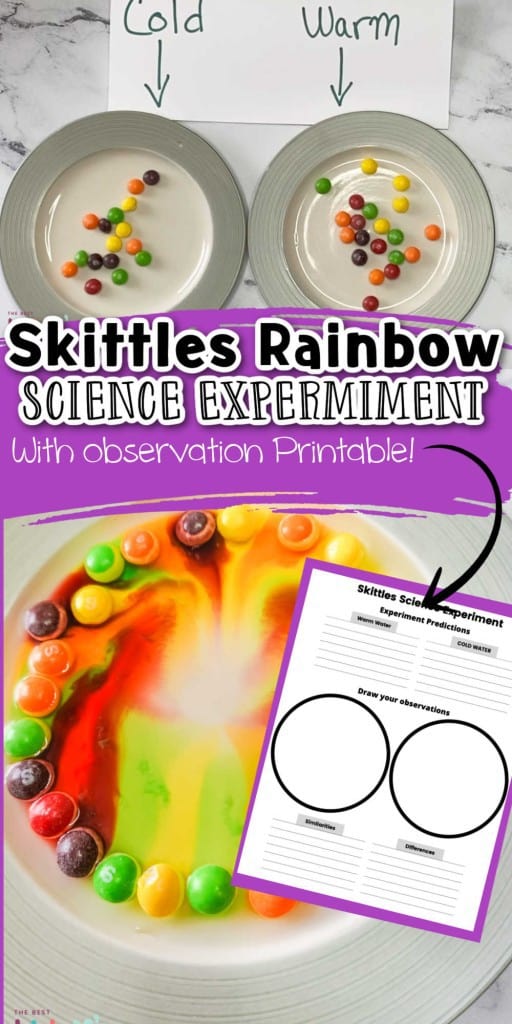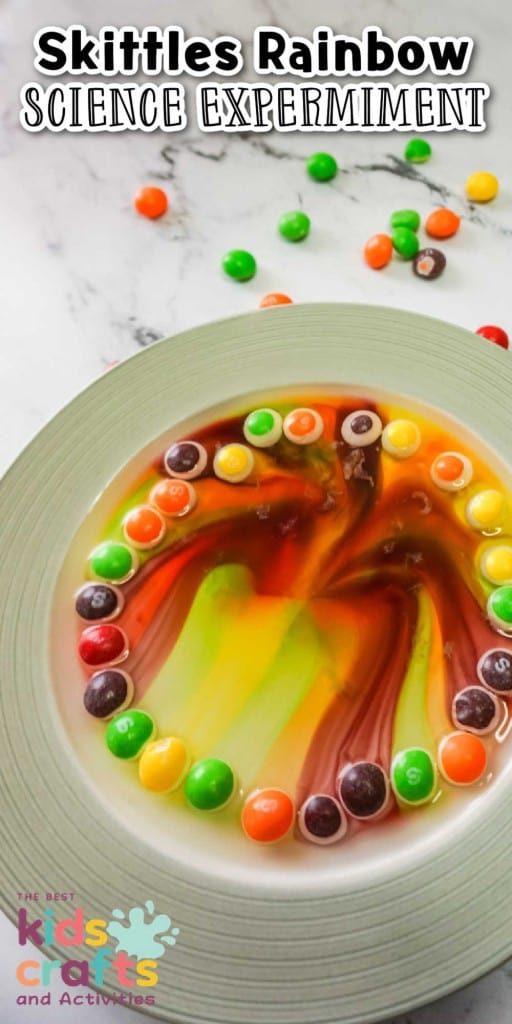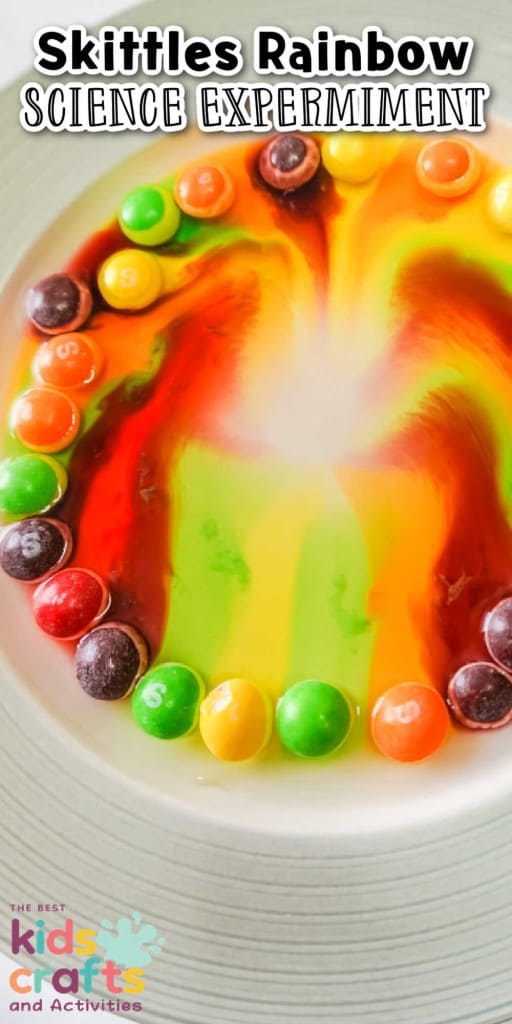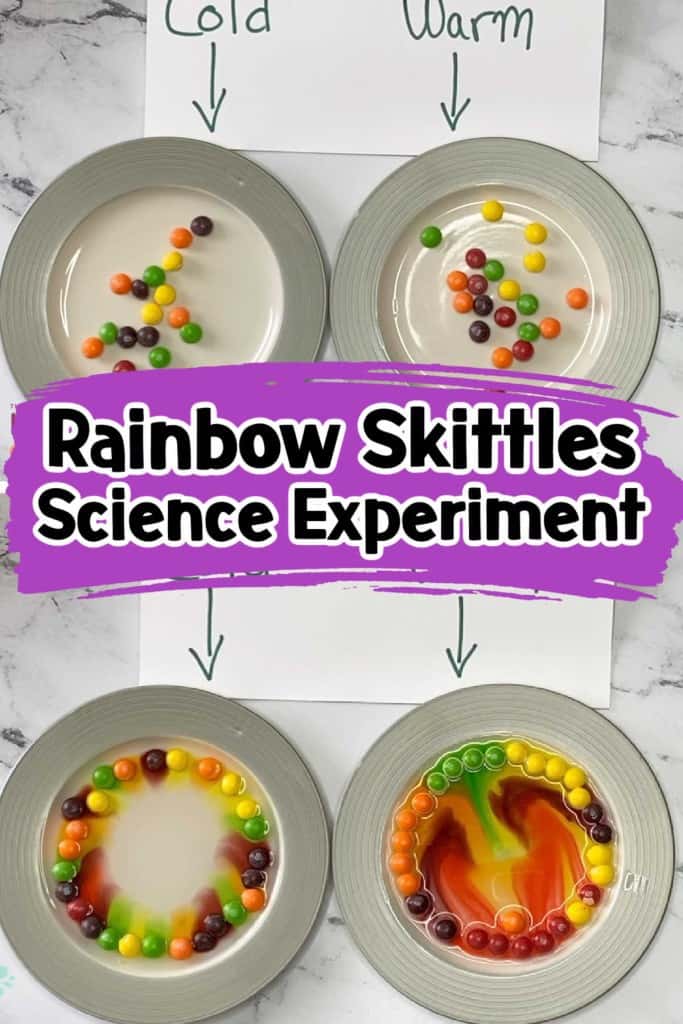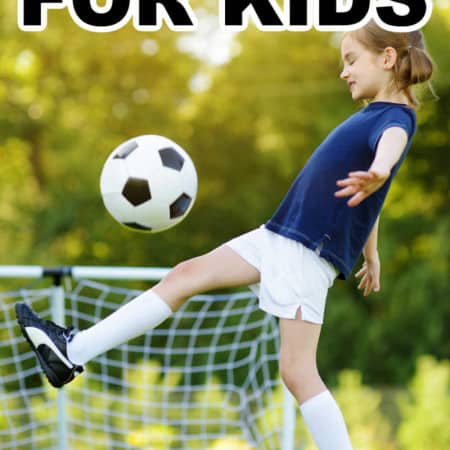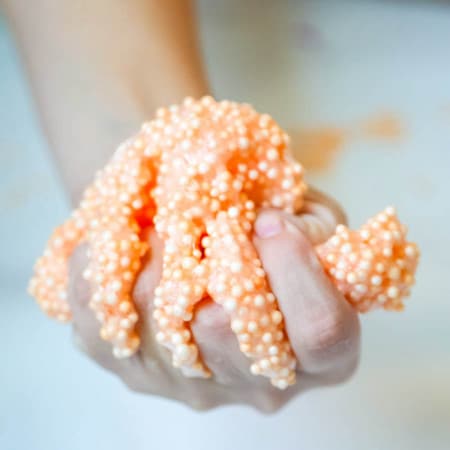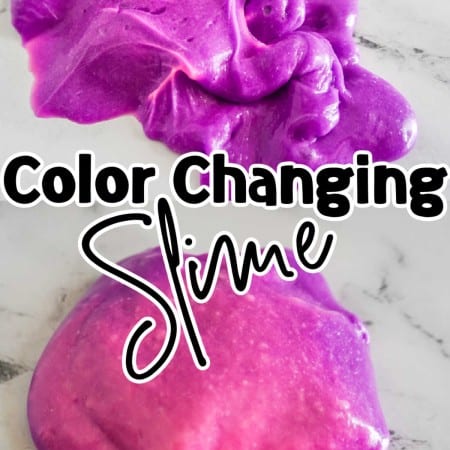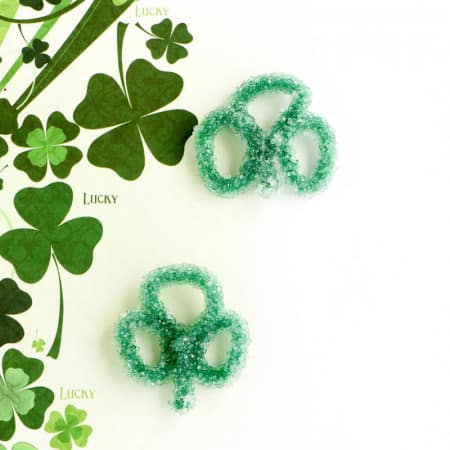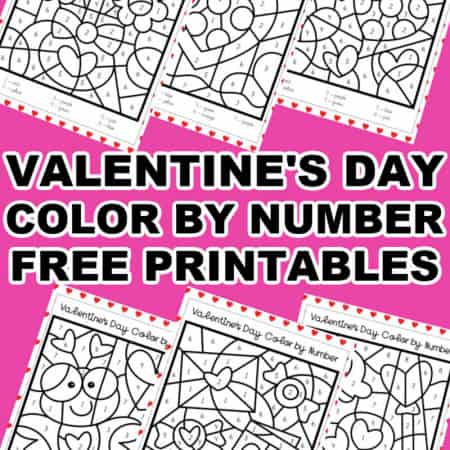This easy skittles experiment is one that the kids will love, and while having fun they will be learning too! With this Easy Rainbow Skittles science experiment kids will learn about absorption, dissolving, and Water stratification.
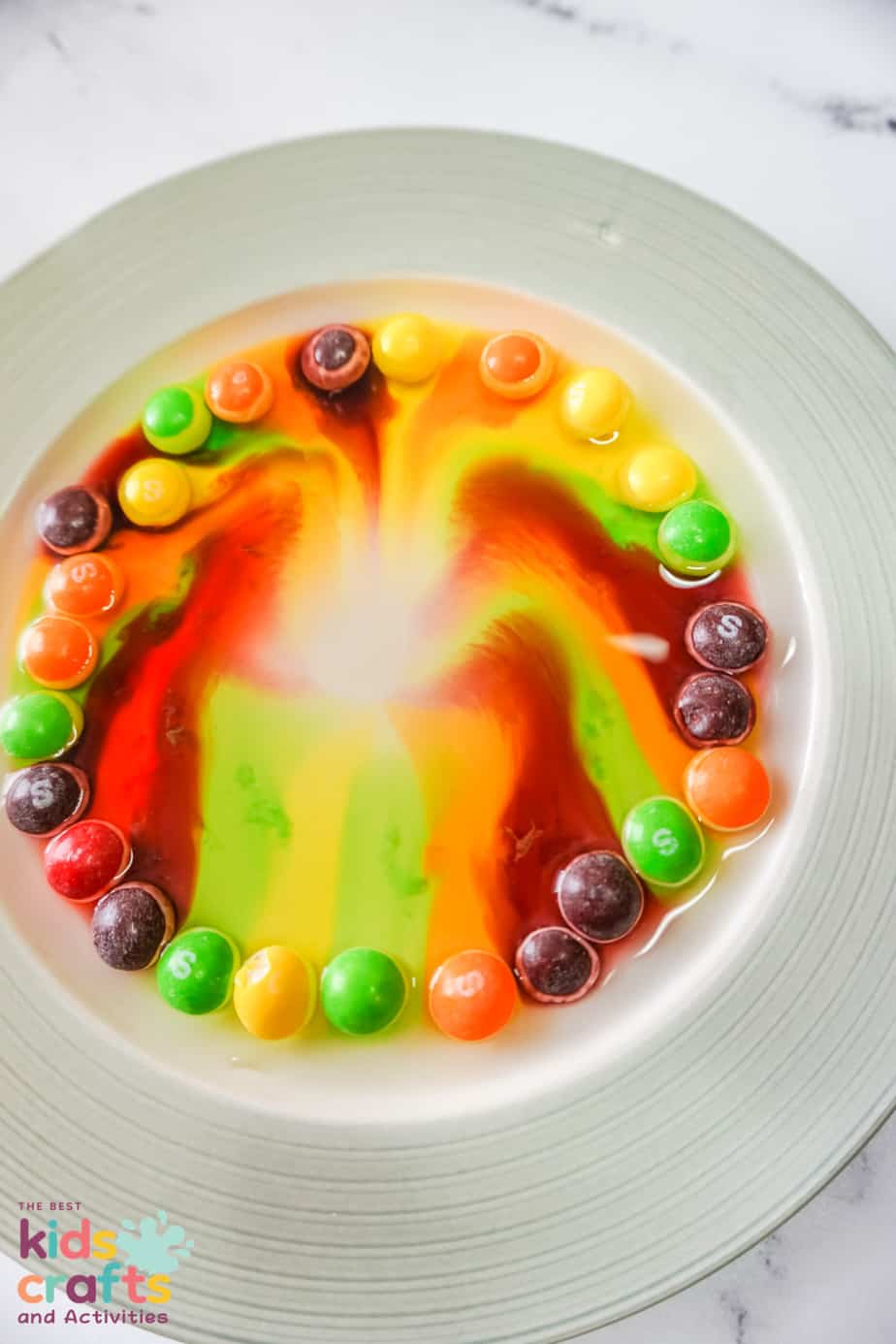
Rainbow Skittles Science Experiment
I love having fun with the kids that also means they are learning something. Of course when my kids hear candy is involved it is for sure to be an activity they want to do and enjoy. This Skittles Rainbow science experiment is an easy activity to do with the kids, and while they are having fun they are also learning.
To have the kids count this as a science project and to get their mind thinking having them start by answering a few questions about what they think is going to happen. I also like to have them write down the things they see happening as they watch it.
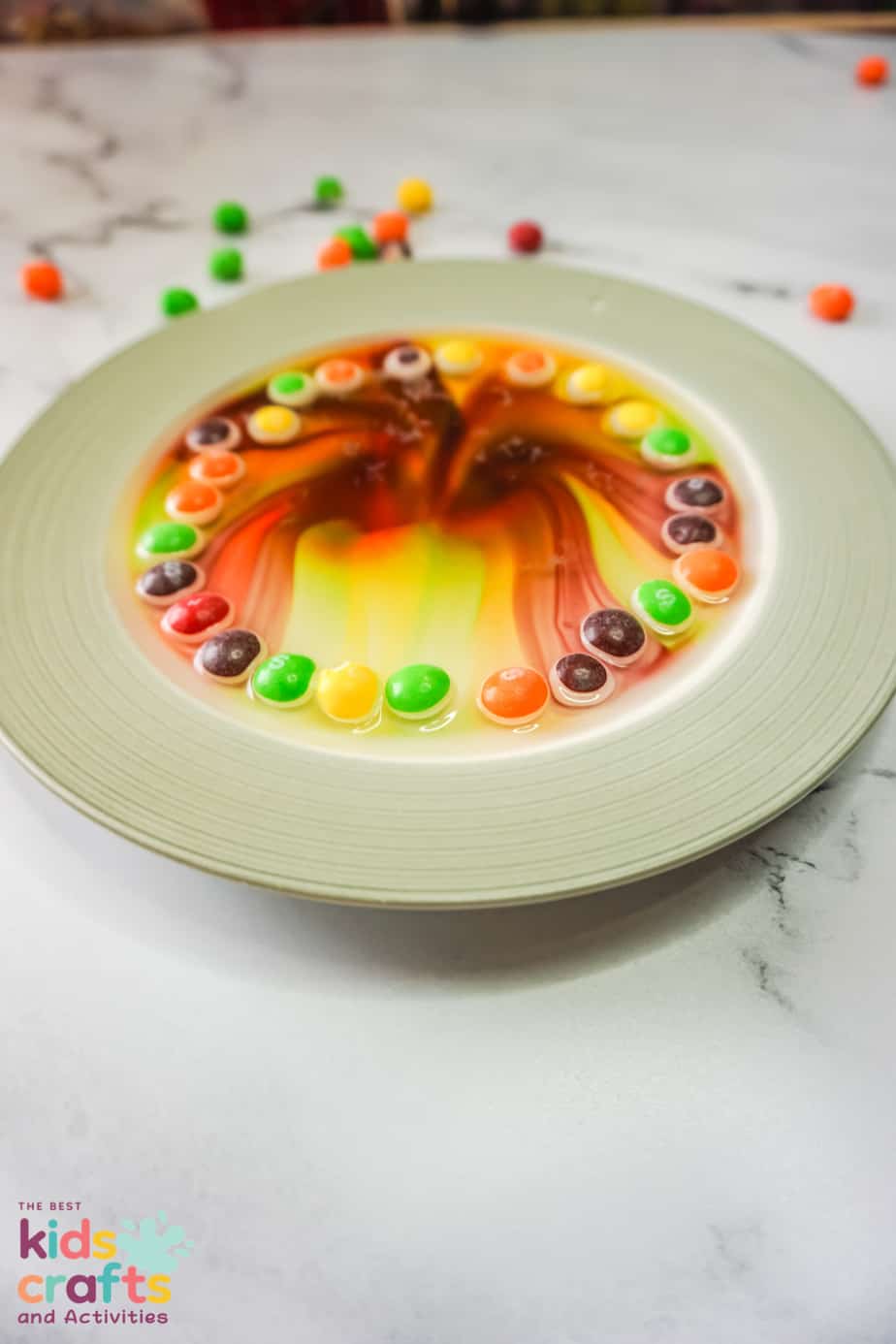
What is the Objective of the Skittles Science Experiment?
The objective is to see how quickly or slowly depending on the liquid that is poured on the skittles the colors form a rainbow. The experiment allows you to explore concepts such as solubility, concentration gradients, and the movement of molecules in a liquid medium. It’s a simple and visually appealing way to learn about these scientific principles.
While doing the Skittles science experiment you will observe and understand the process of dissolution, diffusion, and color separation. By placing a circle of Skittles candies on a plate or in a shallow dish and adding water, you can witness the colors from the candy coatings dissolve and create a vibrant pattern. This easy kid friendly science experiment is a great way to teach kids about water stratification.
Skittles are made with sugar and a candy coating on the outside, when they are covered in a liquid the candy coating and the sugar dissolve (how fast is dependent on the liquid you are using and its temperature). We used water but you can try this experiment with different liquids too. When the skittles get wet with the water, they release their respective colors slowly and it starts traveling towards the center of the plate.
Learning about absorption, dissolving and Water stratification is the main focal point of this experiment.
When the water is first poured on the Skittles you will see the skittle absorb some of the water and start dissolving (the color coating dissolves first and then the whole skittle eventually), which will start the water stratification (colors moving in the water but not combining) and then if you keep watching you will see the skittles fully dissolve in the water.
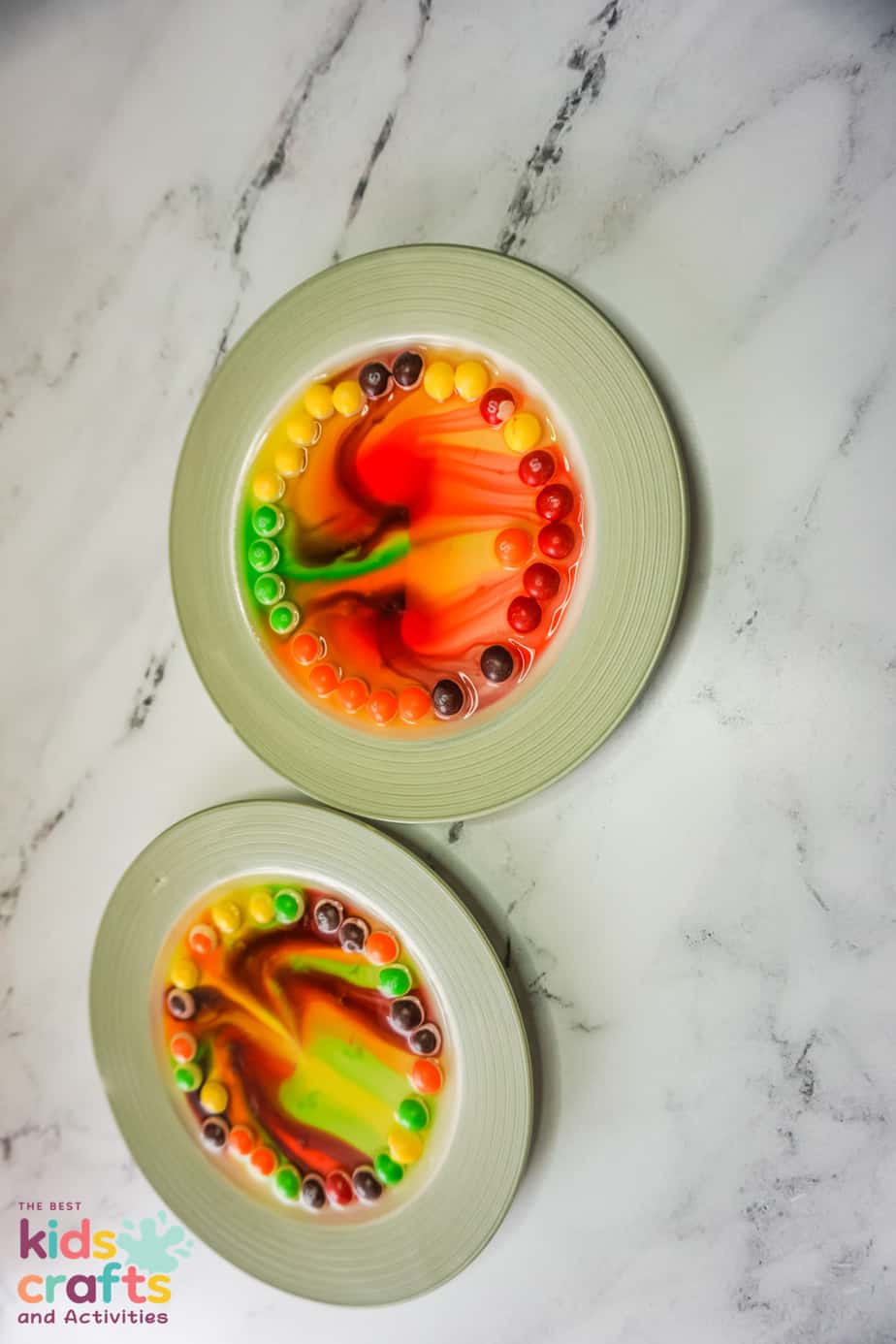
What is water stratification?
Water stratification is nothing like the non-mixing up of colors as the colors show different chemical properties.
Skittles are different colors and each and every color is different chemical properties, which is seen when the water mixes with the skittle, which keeps the colors from mixing up.
Why don’t the colors mix when the Skittles are dissolving?
That is part of the fun of the experiment! Because of water stratification, the colors of the skittles dissolve on the skittle but each color has different chemical properties that make them up, so when mixed with water they spread but they do not combine.
Each color skittle creates a water solution with slightly different properties (e.g. density). This creates a barrier that prevents the colors from mixing. When water is poured onto the Skittles, the sugar will move to areas of water with lower sugar concentrations. If the water is poured in the center, this is happening for each Skittle at relatively the same speed which forms the Skittle rainbow.
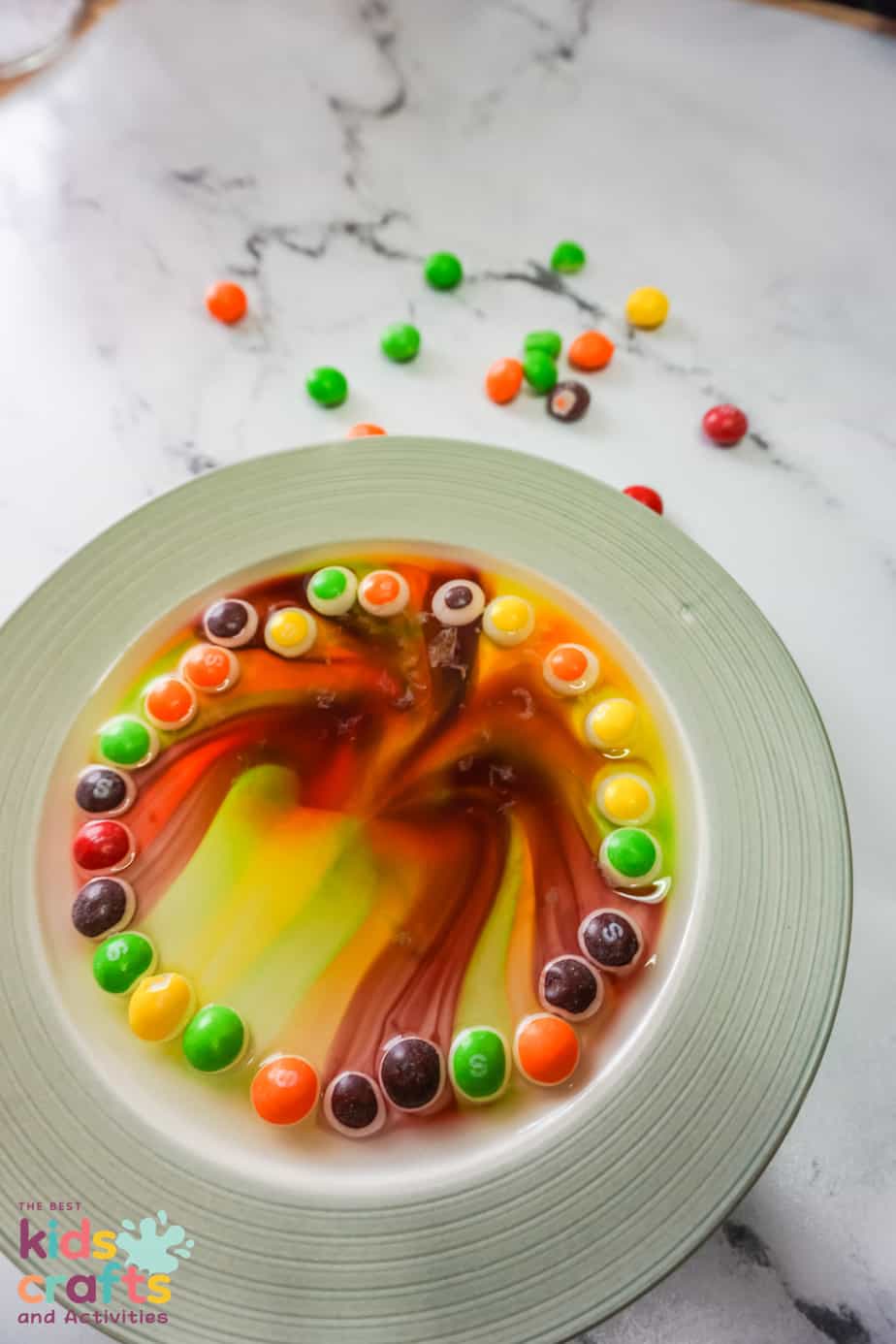
What other liquids can I try?
We did this skittle experiment with water for this blog post but you can also use milk, vinegar, salt water, sugar water, or soda. Things will be different for the results but you can have the kids compare the different liquids to how the skittles science experiment worked with the water.
Other Things to Try with this Skittles Rainbow Experiment
Change up the water temperature. See what happens when you use different temperatures of water with the Skittles.
Change up the pattern. You can also change up the patterns of the Skittles and see what happens to the colors if the Skittles are put into different patterns or even set up to form letters and numbers. Do the colors act the same as when you stick them in a circle?
Use different colored Skittles. I like using the original red bag of Skittles but you can use any of the new bags that have different colors of Skittles. Try using just primary colors, or just secondary colors and see the differences.
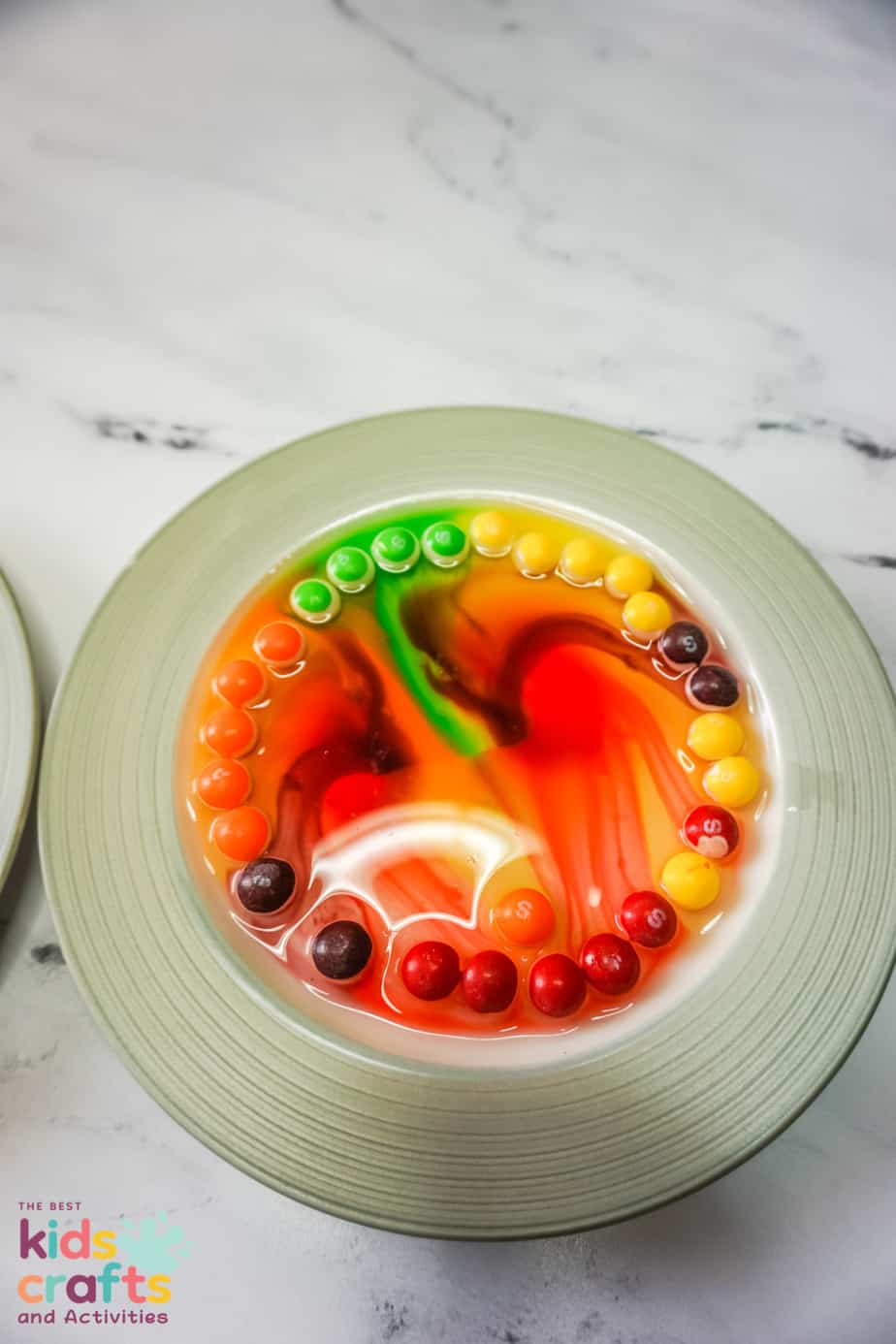
Tips for Skittle Science Experiment
Use white plates. It is best to use a glass or ceramic white plate. It is also important to make sure that the plates are clean.
Don’t use too much water. Pour enough water to cover the bottom of the Skittles. Do not add too much water, you don’t want the Skittles to float out of position.
Questions to ask Kids when doing the Rainbow Skittles Experiment
- Do you think warm or cold water will make them dissolve faster?
- Why do you think the colors are not mixing together?
- Could this Skittles science experiment work with another type of candy?
- What do you think would happen with other liquids? Do you think other liquids would react the same way as water?
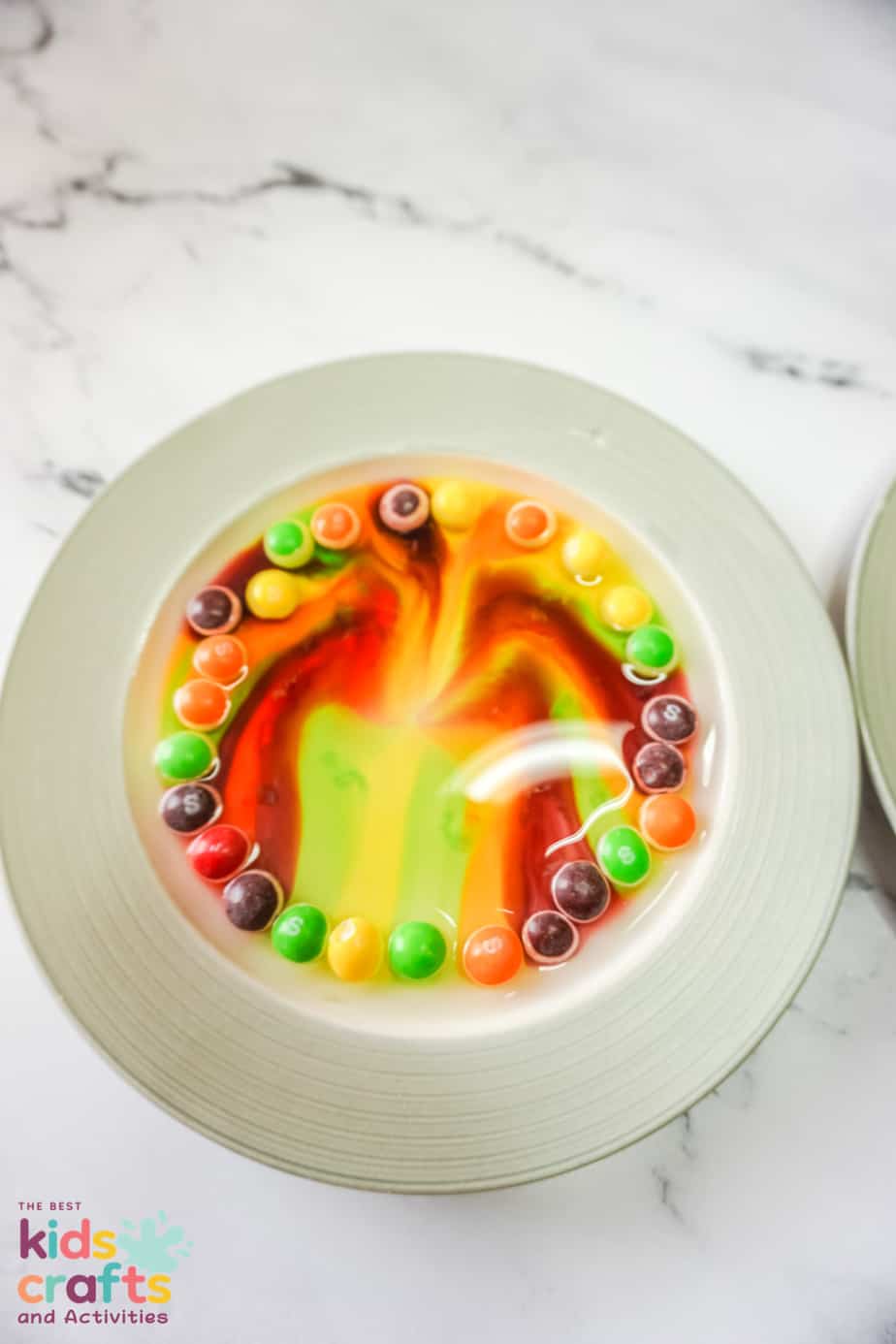
Rainbow Skittles Science Experiment Observation Printable
If you want to turn this fun skittles experiment into a classroom lesson or a homeschool lesson print the free Skittles Experiment observation printable I have made.
How to Print
Just fill out the form below and the Rainbow Skittles Science Experiment Printable will arrive in your e-mail inbox! You can then print it as many times as you need to.
Rainbow Skittles Science Experiment Ingredients
- 2 plates
- ½ cup Skittles
- 1 cup Warm Water
- 1 cup Cold Water
Rainbow Skittles Science Experiment How to Video
How to do the Rainbow Skittles Science Experiment
Place ½ of the Skittles in each plate around the edges.
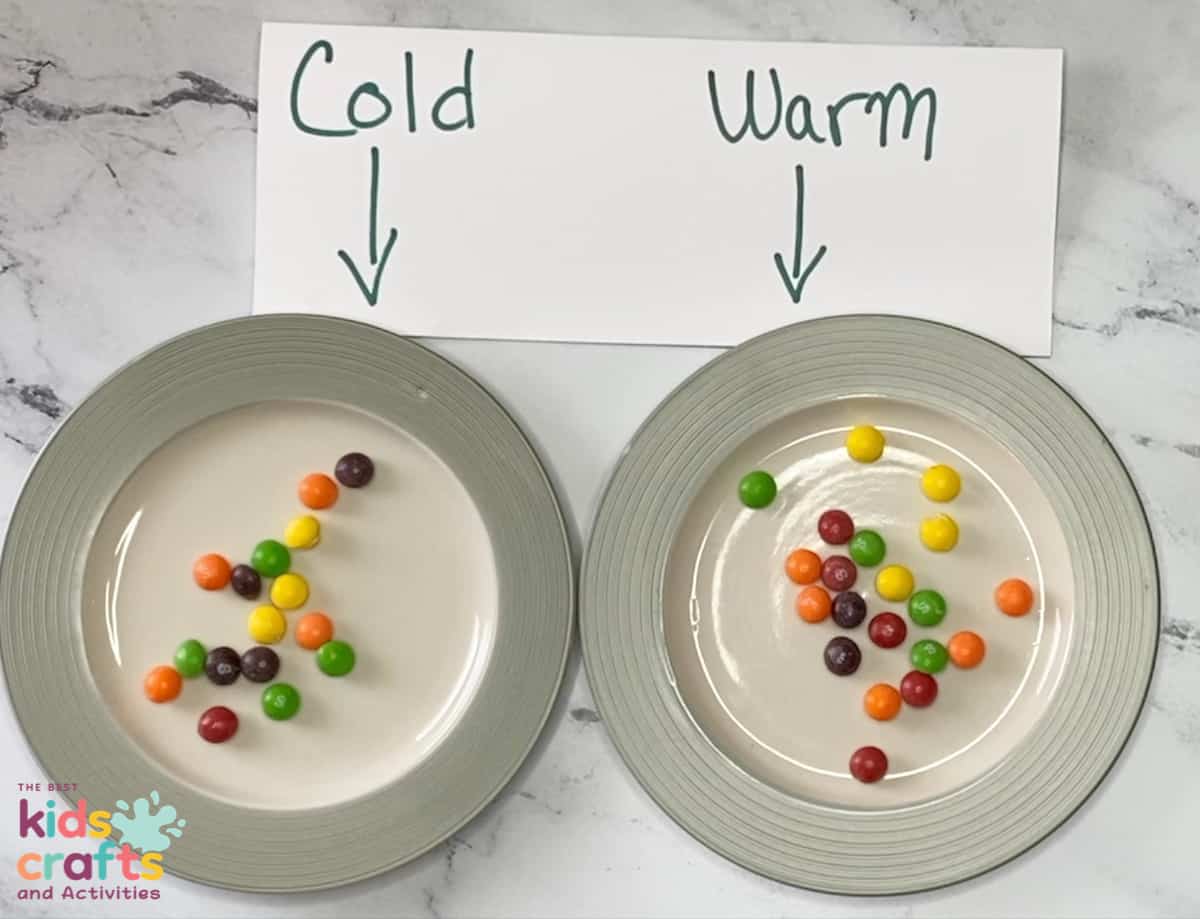
Cover the Skittles on one plate with the warm water.
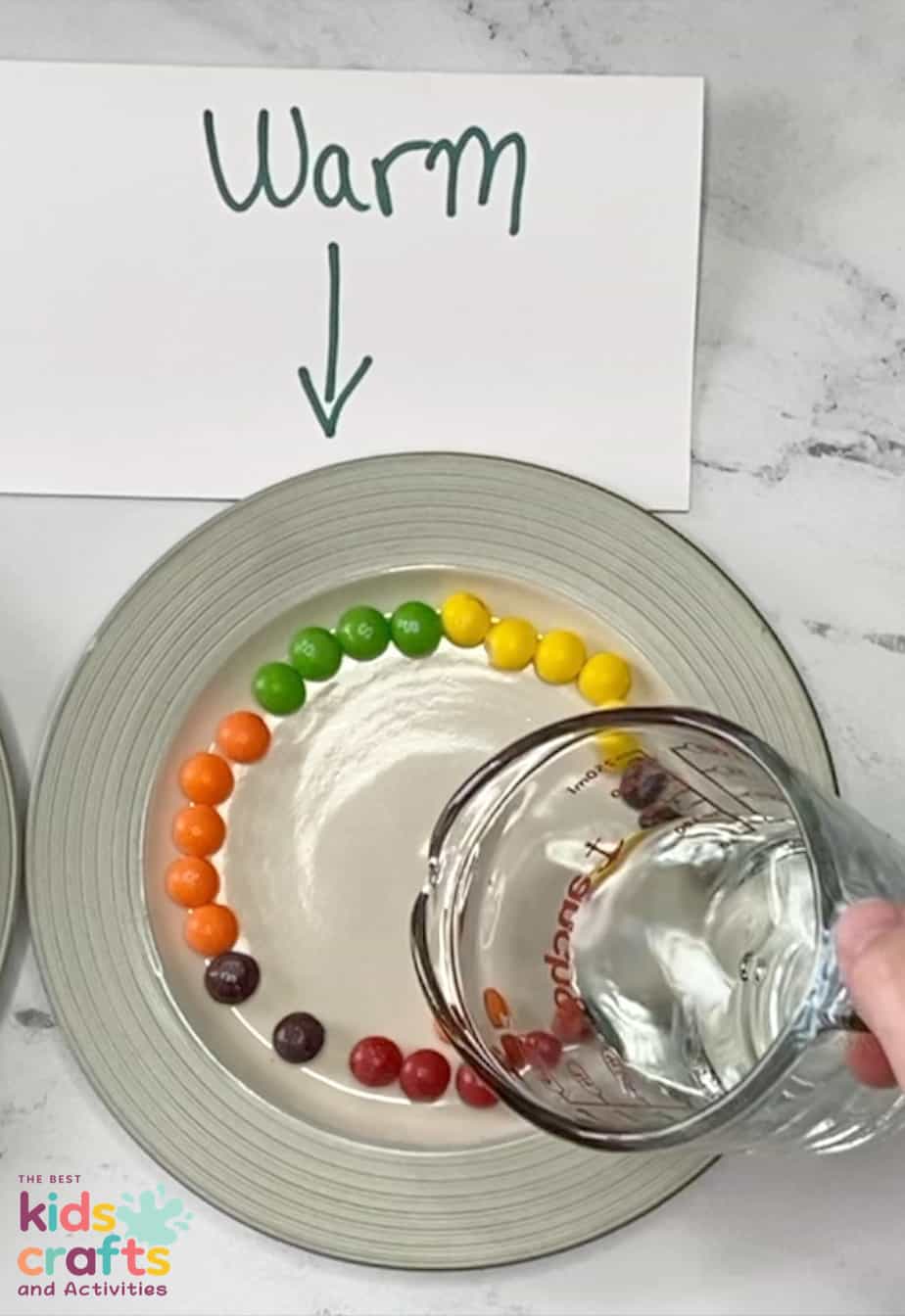
Cover the Skittles on the second plate with the cold water.
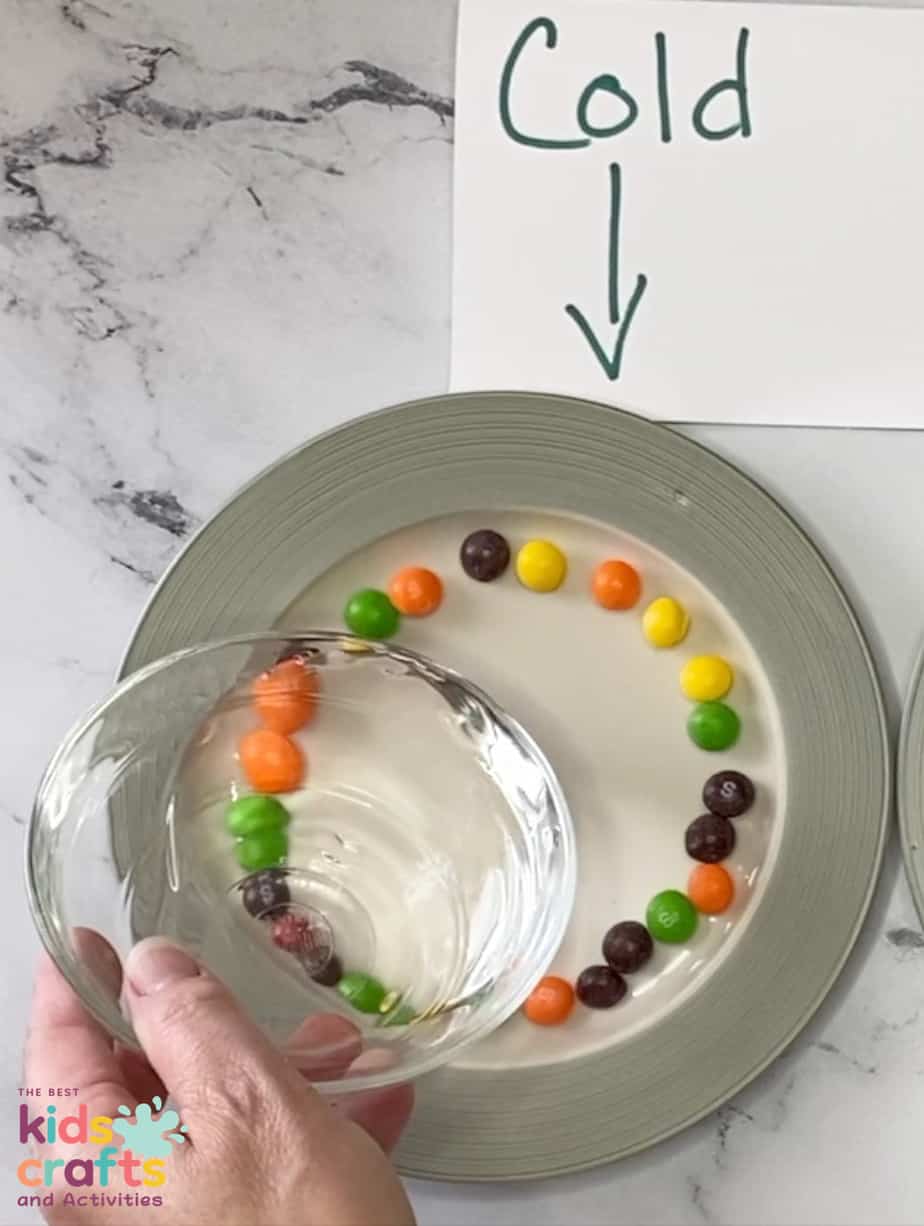
Observe how the coating dissolves on the warm water much quicker than the cold water.
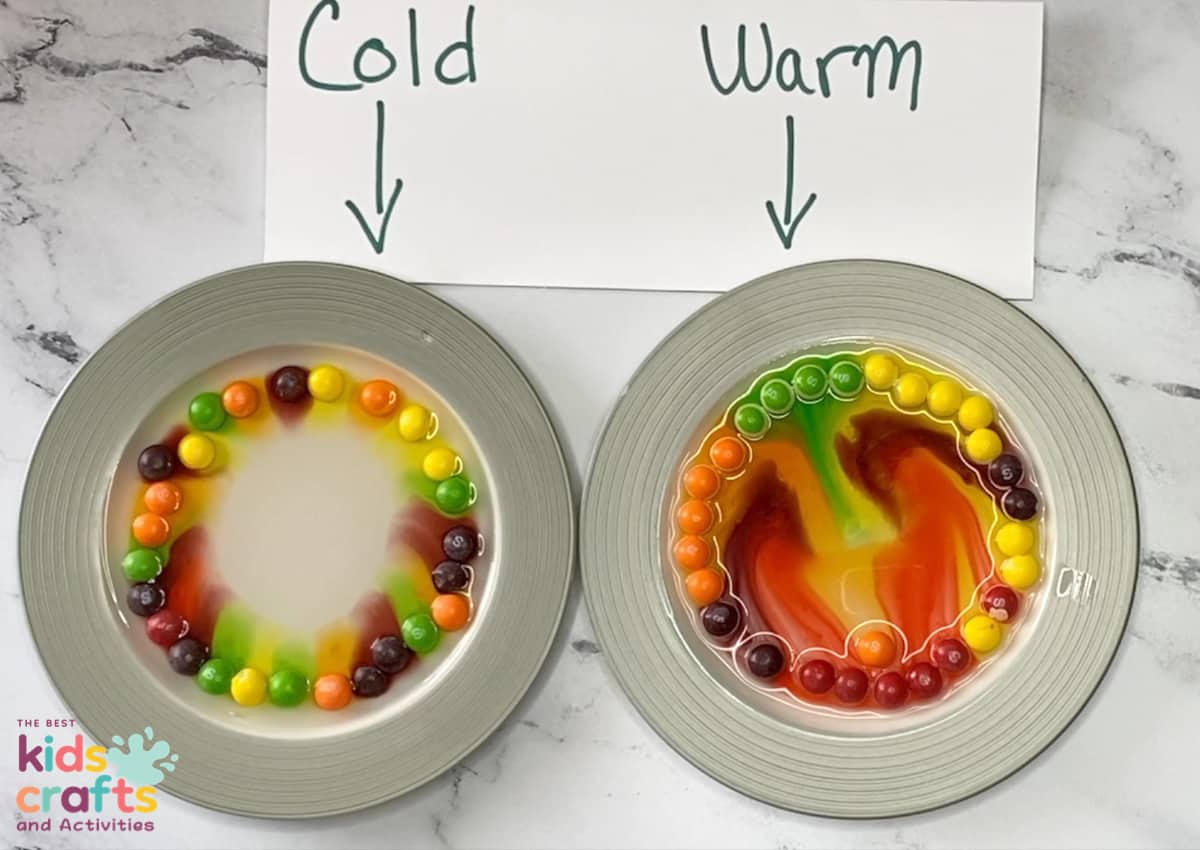
Do not disturb the plate until the skittles completely release color and dissolve.

